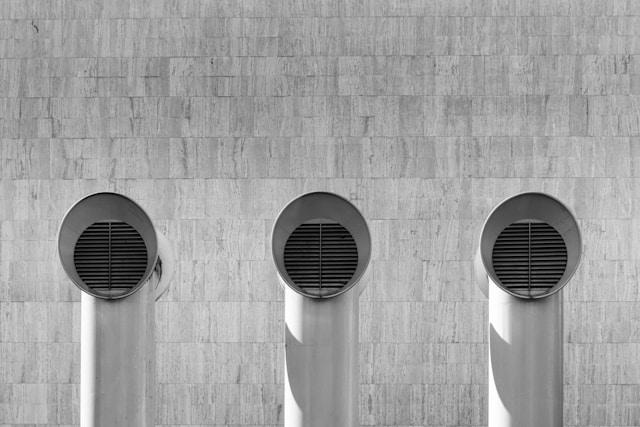Upgrading & Fixing HVAC Systems: A How-to Guide
Heating, ventilation, and air conditioning (HVAC) systems aim to maintain indoor comfort. But like any complex system, they may sometimes require upgrades or repairs to operate efficiently. Homeowners may find this task a challenge, but understanding the basics can make the process much smoother. This guide sheds light on essential components of an HVAC system, common issues that arise, and tips for both fixing and upgrading systems effectively — let’s begin!
Understanding Your HVAC System
The first step to upgrading or fixing your HVAC system is understanding its components. An HVAC system generally comprises a furnace, air conditioner, ductwork, and thermostat. The furnace generates heat, while the air conditioner cools the air. The ductwork distributes the air throughout the home, and the thermostat regulates the temperature. Recognizing how these parts function together will identify where problems may arise.
When planning to upgrade your system, look into energy efficiency ratings. Equipment with higher SEER (Seasonal Energy Efficiency Ratio) ratings can significantly reduce energy bills. Awareness of newer technologies, like smart thermostats and variable-speed blowers, can enhance comfort and efficiency.
DIY Fixes and When to Call a Professional
While some HVAC issues can be addressed with simple DIY fixes, you must know when to call a professional. Homeowners may be able to handle tasks like changing air filters, clearing debris from outdoor units, and checking thermostat settings. However, more intricate problems, such as refrigerant leaks, electrical issues, or extensive ductwork problems may necessitate professional intervention. If you live in a state like Texas, you can find the right commercial HVAC services near Plano, TX to take care of these issues the right way. These components require specialized training and tools that homeowners typically lack. Scheduling annual maintenance checks can help catch potential problems early, saving money in the long run. These proactive measures can lead to more efficient operation so that your system runs well during the busiest seasons.
Identifying Common HVAC Issues
Every HVAC system may face issues over time, from odd noises to uneven temperature distribution. One of the most common complaints is inconsistent heating or cooling, which can stem from clogged filters or duct leaks. In this case, you must check the air filters regularly to ensure optimal airflow. Dirty filters restrict airflow, making the system work harder, thus increasing energy usage and wear. Replacing filters every month can mitigate this problem.
Poor maintenance practices can cause refrigerant leaks in air conditioning systems and decreased performance. Especially older heating systems may require a pilot light or have difficulty igniting.
Upgrading Your HVAC System: When & Why
Knowing when to upgrade your HVAC system is vital for maintaining indoor comfort. Factors like system age, excessive repair costs, or frequent breakdowns indicate it may be time for an upgrade. Generally, an HVAC system lasts around 15 years, so if yours is nearing this age and demands more upkeep, you might want to modernize it. Newer units are designed to be more energy efficient and reflect on your utility bills. On the other hand, older systems often use more energy than necessary, contributing to higher operational costs and larger environmental footprints.
An upgrade could also yield greater home comfort with advanced features such as humidity control, enhanced air filtration, and smart technology integrations. Such advancements can assure better air quality and convenience, targeting not just temperature but overall indoor conditions.
Cost Considerations for HVAC Upgrades
Understand potential costs to determine the best investment for your home. Initially, an upgrade may seem daunting based on estimated costs; however, the long-term savings can outweigh the upfront investment. Energy-efficient systems often lead to lower utility bills over time and provide returns on investment.
Costs can vary based on system choice, size, and any necessary modifications to existing ductwork or electrical systems. Don’t forget to explore available rebates or financing options offered by energy companies or manufacturers. Finally, consider how an upgraded system may enhance your home value. Homes equipped with high-efficiency HVAC systems have a higher chance of attracting buyers.
Regular Maintenance for Longevity
The most effective way to ensure your HVAC system lasts longer is through regular maintenance. Scheduling seasonal check-ups prepares your system for heavy demands, whether in summer or winter. Technicians will inspect all components, clean parts, and make necessary adjustments to keep it running smoothly.
Simple tasks like checking the thermostat calibration can increase efficiency, enhance comfort, and minimize costs. Regular maintenance prolongs your system's life and, most importantly, prevents costly breakdowns. Some HVAC professionals recommend having your system serviced at least once a year, especially before peak usage seasons. Setting reminders helps maintain this schedule, ensuring consistent system performance. Implementing a maintenance schedule will keep your system on track, enhancing its longevity and efficiency.
Addressing the needs of your HVAC system requires careful consideration and action. Understanding system components, recognizing issues, and knowing when to upgrade are crucial steps for homeowners. Regular maintenance and informed decisions on repairs or upgrades can ensure your HVAC system remains efficient and reliable.

